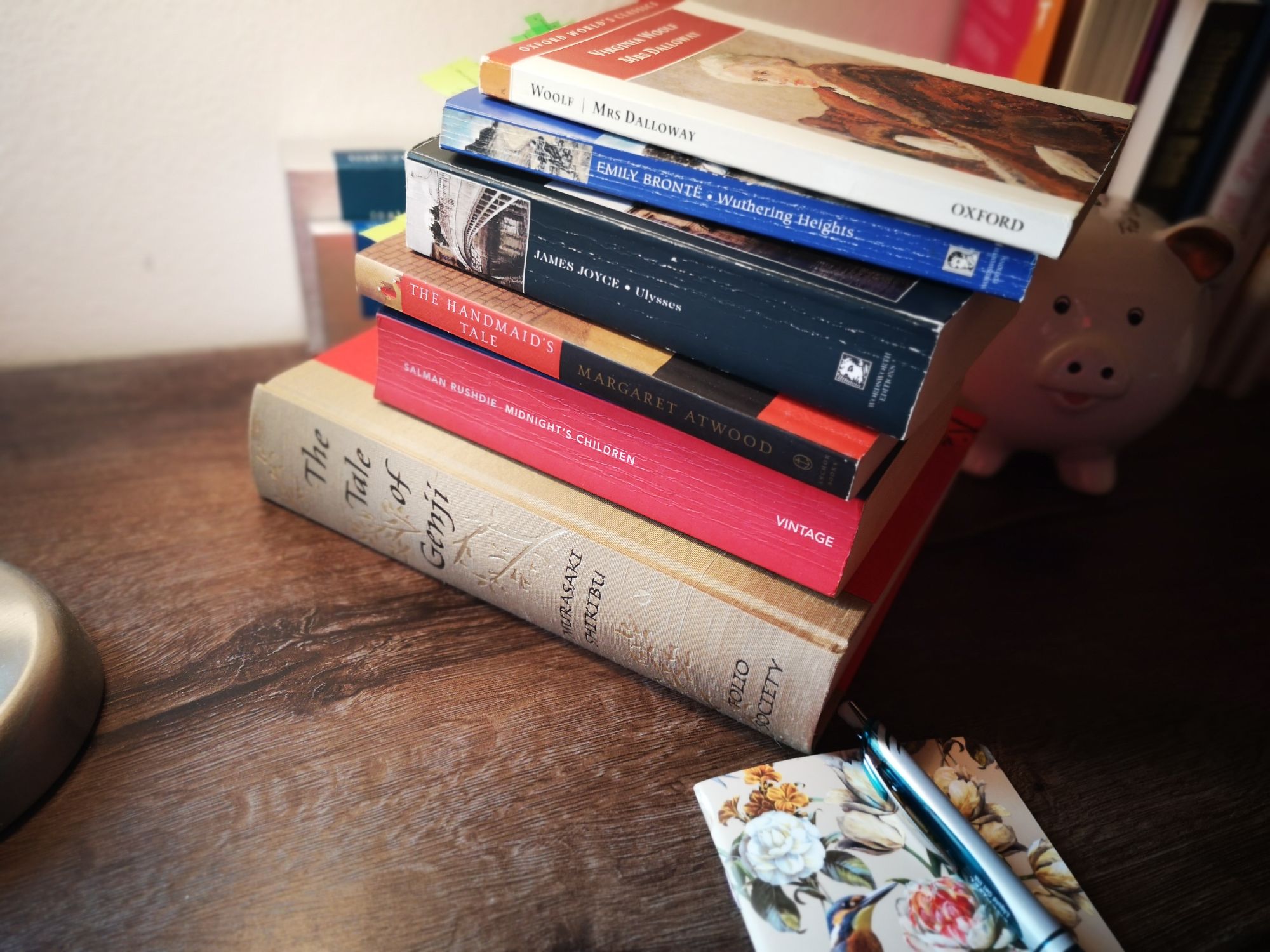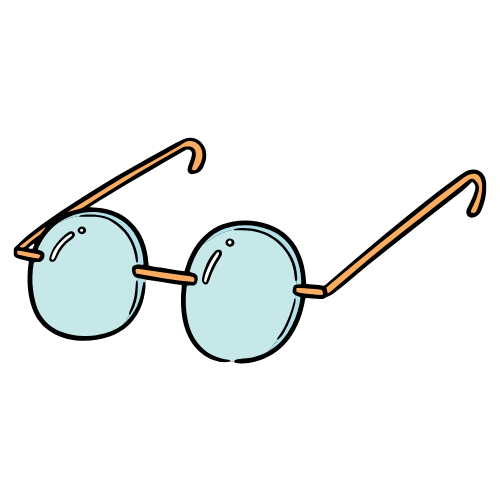The Brothers Karamazov. Gravity’s Rainbow. Wuthering Heights. In Search of Lost Time. Mrs Dalloway. One Hundred Years of Solitude. And the list could go on. I’m sure you also have some examples of books which you tackled at one point in time and gave up because of various reasons. I mean, just from the list above, I gave up on 4 books at different times in my life. But now 2 of these belong to my all-time favourites. There is a little magic to it, a little practicality and a little self-motivation. How to find the perfect mix and how to read that challenging book which has been mocking your reading skills? Keep going.
know your why
About 10 years ago, out of the blue, I decided I wanted to read Virginia Woolf. Just out of thin air. I knew she was one of the most famous authors of the 20th century and her writing was difficult and that’s about it. I bought a used copy of Mrs Dalloway and one or two other titles and started reading. Didn’t get me far. I had no idea what drove her writing, had no help with how to tackle it, and this prevented me from getting much far beyond how Mrs Dalloway had bought the flowers herself.
Thinking back on it, I think my failure was rooted in my lack of a reason to read. I had nothing going on for me in that sense. And after the first paragraphs, when diving into the floating consciousness of Scrope Purvis, I was lost. This changed only years later, when Mrs Dalloway was the book we picked for a book club centered on Modernism and Postmodernism. A reason. Any good one will do.
get a cheap copy first
If you want to read Murasaki Shikibu’s 11th century tale of heroic acts and courtly love The Tale of Genji, don’t go spending hundreds of euros for the Folio edition. I did that and then cursed my days because the book was too precious to underline, scribble into and litter it with sticky notes. Because how else would you read an 11th century work of something which has absolutely nothing to do with our modern understanding of fiction?
A lot of people I know wouldn’t dream of making hand-written notes in the pages of a book. I wouldn’t do it for a Folio edition either. But that’s why we have Wordsworth, Penguin and used books. To turn cheap paperbacks into a personal encounter with a difficult text, a personal diary, a thought-catcher. This way, that cheap copy will become a version of you that you could later turn back to. We read to grow. And growing leaves marks.
structure your reading
I personally can’t read a difficult book as I would read an entertaining beach thriller. In an action-driven novel you care about what happens and who does it, but in a book which is filled with literary hurdles and traps for the innocent reader, you can’t afford to care about the action if you are to get through the book at all. I still remember when I first read Margaret Atwood’s The Handmaid’s Tale. I couldn’t make heads or tails of it. I just cared about how Gilead ended up being a totalitarian state.
Now, of course, Atwood’s story of enslaved women who are there just to please the men, is also about the politics of Gilead. But it’s much more about Offred and how she deals with her new situation. She gets no explanations and neither do we. To reproject your expectations, it’s useful to portion your reading. The chapters are just a few pages long and make the book fit for stretching over some weeks. Just 1 or 2 chapters a day and the book sits entirely differently in your head.
listen to what resonates with you
There is a sense of pride to be able to say that you read Salman Rushie’s Midnight’s Children. You can also write a university essay analyzing the postmodernism out if it. And then, what’s left? There is no sense of enjoyment when you just go on pride and literary appreciation, that much I’ve learned. Because if that’s all you have left at the end, the book has failed in its purpose. And books are foremost about people, about feelings, about life.
When reading something supposedly difficult and famous, I always pay attention to something within me to arise which the book can hook onto. Sometimes the book clicks into place from the first pages, sometimes only after 10 years and sometimes it never does. You can wait for it, but you can’t force it. Midnight’s Children immediately clicked, with Saleem’s stories of preserving vegetables in colourful jars and his spinning of a story to an unknown listener. Moby Dick never did, still waiting for it.
read/listen/walk/talk around
I never finished Ulysses, James Joyce’s famous Modernist brick of a masterpiece. Neither did I finish The Tale of Genji. I’m pretty sure there is more than one reason why, and one of these reasons is that they both need research and guidance. They are both so unlike anything we are nowadays used to, that simply just swimming somehow through the pages and getting the gist of what’s being said just can’t be called reading in my opinion.
Pretty much any book worth reading benefits from some additional research. My standard go-tos are Goodreads reviews, Youtube videos, and Spotify podcasts. Different people have different opinions and for me those opinions are an absolute must if I am to get into a book beyond that which my own mind is capable of. The best for me is when I share a read with friends or with your book club. That’s when the books slip into life and the best of both worlds reveals itself to me.
Another great research method is to immerse yourself in the book, physically speaking, by visiting the actual places which are portrayed in the book. Mrs Dalloway by Viriginia Woolf, for instance, is brought to life when going on a walk in London, and so is Ulysses by a visit in Dublin.
give the book an honest chance
The magic of reading occurs when you set the book free of your expectations and you flow with it. But sometimes you need to help yourself get into that flow and get over what you expect or what you’ve been told. Take Wuthering Heights. Some say they can’t stand how selfish Catherine and Heathcliff are. Others say Emily Bronte’s book is one of the crown jewels of English literature. I guess both sides are right, but how are you gonna know if you don’t read it for yourself honestly?
Give famously controversial (and difficult) books an honest chance. Read slowly, set the book aside for a few days and return to it after spending some minutes thinking about what you’ve read. Wuthering Heights for instance has been around for more than 170 years now. It will survive your throwing it against the wall in frustration, forgetting about it for a couple of years, passionately hating it because of horrible characters. Maybe that’s why it’s even there for. To survive and be there for you when you’re ready for it.
So, does any of this help? Did I list any book which you have given up on and you are now excited to turn back to? As I see it, books which are worth it are not easy and books which are easy are not worth it. Yet that’s not to say that just because a book is difficult, it should become the Holy Grail of your reading struggles. I wouldn’t pick up Gravity’s Rainbow if you paid me. But there is a sense of pride and meaning which lingers after reading the last page of a challenging book. It’s about finding that balance between pushing your intellectual boundaries and choosing books that resonate with you personally. And, for me, that’s worth all the effort.







your thoughts?